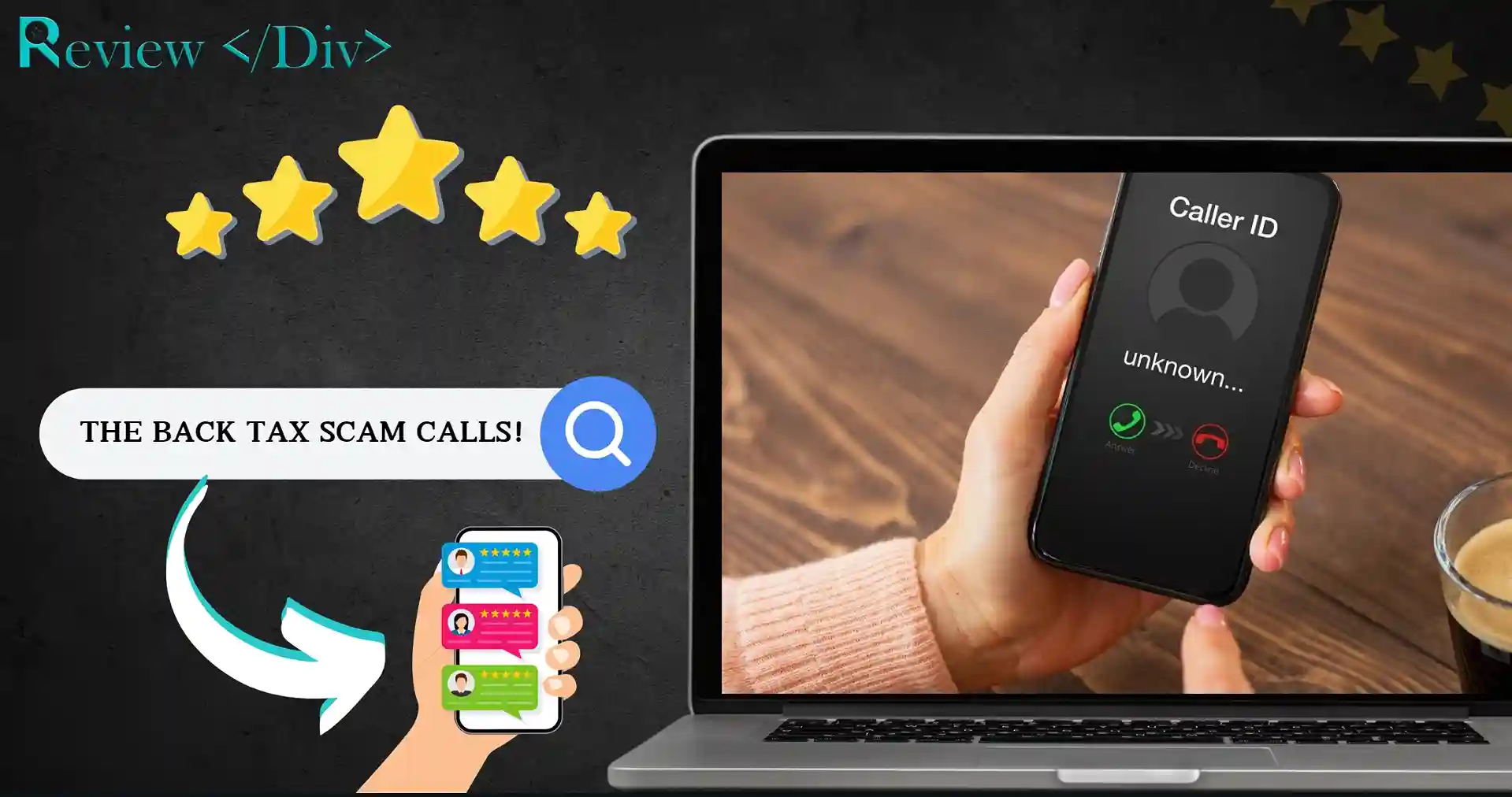When it comes to financial scams, back tax scam calls have become one of the most alarming threats, targeting unsuspecting individuals across the country.
Scammers posing as IRS agents or tax officials create fear and urgency, claiming victims owe back taxes and must pay immediately to avoid severe legal consequences.
In this post, we will explore what are the Back Tax Scam Calls, how this scam works, and what to do if you fall for this scam.
Back Tax Scam Calls Overview
Back tax scam calls are a type of fraudulent communication where scammers pretend to be representatives of the IRS or other tax authorities.
These frauds claim that the person they’ve contacted owes back taxes and must pay immediately to avoid severe legal repercussions.
Their goal is to create a sense of urgency and fear, pushing their victims to pay large sums of money instantly.
To make their claims appear legitimate, these scammers manipulate caller ID systems to show an official-looking number, tricking people into believing the call is from the IRS.
How the Back Tax Scam Calls Work?
Back tax scam calls operate using psychological manipulation, aiming to take advantage of people’s fear and confusion about taxes. Here’s how they work.
Initial Call: The scammer calls, pretending to be an IRS agent or another tax official. They may provide fake credentials and sound professional to build trust.
Gathering Personal Information: Sometimes, scammers already have some of the victim’s personal details, such as their Social Security number or address, which can make their story sound more convincing. This information may be used to pressure the victim further.
Payment Demands: Victims are instructed to make payments using methods that are hard to trace, such as wire transfers or prepaid gift cards. The scammer instructs them to purchase specific gift cards and relays the card numbers over the phone.
Impact on the Victim: Once victims share their financial details or make a payment, the scammer can quickly drain their accounts or use the stolen information for identity theft.
What to Do if You Fall for the Back Tax Scam Calls
If you realize you’ve fallen victim to a back tax scam call, it’s important to act fast to minimize potential damage. Here are the steps you should take.
1. End Communication
If you’re still on the call and realize it’s a scam, hang up immediately. Do not provide any personal details or send money.
2. Record Important Information
Document as much information about the call as possible, including the phone number displayed on your caller ID, the name the scammer used, and any key points discussed during the conversation.
3. Notify Your Bank
If you’ve shared any financial information or completed a transaction, contact your bank or financial institution right away to report the fraud. They may be able to halt transactions or secure your accounts.
4. Check Your Financial Accounts
Regularly check your bank and credit card statements for any suspicious activity. If necessary, place fraud alerts on your credit reports through the major credit bureaus: Equifax, Experian, and TransUnion.







